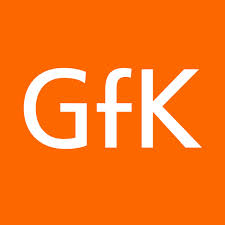 Germany: Consumer climate holds its ground
Germany: Consumer climate holds its ground
Nuremberg, 31 October 2013 – In October, there was little change in the consumer mood in Germany compared with the previous month. Economic expectations improved marginally, while income expectations and willingness to buy dropped slightly. Following 7.1 points in October, the overall indicator is forecasting a value of 7.0 points for November.
The first survey of the consumer mood after the German general election delivered exceedingly relaxed results. The slight increase in economic expectations suggests that the German economy will be able to recover in the coming months, albeit at a very slow rate. Willingness to buy once again maintained the high level of the previous month and only fell slightly. Despite a decrease, income expectations also remained optimistic in October.
Economic expectations: minimal improvement
Following a considerable increase in September, economic expectations once again increased this month. However, at 0.6 points, the rise was very modest. The indicator is currently at 11.3 points and therefore has clearly cemented its position in the positive figures and above the long-term average of zero points.
Consumers are expecting a continued stabilization of the German economy and that the upward trend will even accelerate in the coming months. Following a rather weak 2013 with growth of +0.4 percent, leading economic research institutions are predicting +1.8 percent for 2014 in their latest autumn forecast. However, in order for this to be achieved, it is necessary that companies in Germany considerably increase their investment activity, which has been somewhat sluggish up to now. This assessment is justified given the continued favorable financial conditions as well as the fact that the eurozone is also gradually coming out of recession and the global economy is picking up further. At present, German companies are slightly less optimistic about the ongoing business prospects than they were in the previous month. Following five consecutive increases, the Ifo Business Climate Index dropped slightly in October but remains at a high level.
Income expectations: slight drop
The income expectations of German consumers fell for the third month in a row. However, the decline of one point is only small, compared with the -3.5 points recorded in the previous month. Despite this, income expectations are still at an extremely high level of 32.7 points.
This is a clear indication that Germans are still counting on positive developments in their income situation. The steady rise in employment and emerging economic upswing provide the ideal conditions for expecting increase in wages and salaries to continue to greater than the predicted inflation rate of just under two percent. In their autumn reports, institutions are therefore predicting that net wages and salaries will rise by more than 3 percent in the coming year. This would mean that employees see real rises in their income.
The current slight weakening in the income outlook is presumably attributable to perceived inflation again rising a little. For many consumers, the increase in food prices results in reduced purchasing power and consequently their optimism is slightly more moderate.
Willingness to buy: top value of previous month confirmed
In October, willingness to buy largely maintained its top value of the previous month. The indicator only fell by 0.6 points and is currently at 44.4 points. In comparison with the same period of the previous year, it has risen by 10.5 points.
The buying mood among German consumers is unbroken. Consumers consider now to be a good time for larger purchases in light of the continued stability of employment prospects combined with real increases in income.
The buying optimism continues to be supported by the extremely low interest level. Following the decision of the US Federal Reserve central bank to continue its expansive fiscal policy for the time being, interest rates will remain extremely low in future. Consequently, it is not very appealing for consumers to invest their money in traditional savings channels. This is also reflected in the propensity to save, which barely improved on the record low of the previous month. In these times of low interest, ever more Germans are instead paying for their purchases on credit. Following a GfK survey conducted on behalf of the Bankenfachverband, around 33 percent of households are currently paying on installment for major purchases such as a car, kitchen of television. One year ago, this was only 29 percent.
Consumer climate: little change
Following 7.1 points in October, the overall indicator is forecasting a value of 7.0 points for November 2013.
There has therefore been little change in the consumer climate and it has maintained its overall good level. Despite the slight decline predicted for the consumer mood, GfK is confirming its forecast issued at the start of the year that private spending in Germany will increase by around one percent in real terms in 2013. This means that the domestic economy will make a decisive contribution to preventing Germany from slipping into recession this year. Increasing employment levels and subsequent rising income are above all responsible for private consumption being and remaining an essential pillar for the economy.
These findings are extracts from the “GfK Consumer Climate MAXX survey”, which is based on around 2,000 consumer interviews conducted each month on behalf of the European Commission. The report contains charts, forecasts and a detailed commentary regarding the indicators. In addition, the report includes information on proposed consumer spending in 20 different areas of the consumer goods and services markets. The GfK Consumer Climate survey has been conducted since 1980.
About GfK
GfK is one of the world’s largest research companies, with almost 13,000 experts working to discover new insights into the way people live, think and shop, in over 100 markets, every day. GfK is constantly innovating and using the latest technologies and the smartest methodologies to give its clients the clearest understanding of the most important people in the world: their customers. In 2012, GfK’s sales amounted to €1.51 billion.
To find out more visit: www.gfk.com
